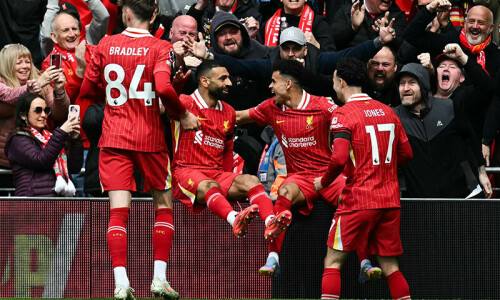LAHORE: Being unable to withdraw the powers once enjoyed by the deputy commissioner’s office from two powerful contenders -- the judiciary and police --and not willing to further weaken the nascent local councils, Punjab chief minister despite his desire can’t bring back the colonial administrative set up in the district.
The chief minister wants to make the office of the deputy commissioner powerful but can’t do this due to legal and political reasons, say bureaucrats finalising the new district administration system which is to be introduced with the induction of the newly-elected local councils in the first week of January.
The bureaucrats too appear dissatisfied with the new office of deputy commissioner, some failing to understand as to how it will deliver without the necessary authority.
Deputy commissioners will replace the DCOs, who initially looked ineffective but delivered effectively as per the wishes of Chief Minister Shahbaz Sharif after he gave them additional charge of administrators to use powers of district nazims whom he sent packing soon after assuming power in 2008.
Legal, political constraints are being cited
The colonial office of deputy commissioner-cum-district magistrate was abolished after Gen Musharraf introduced his local government system in the country in 2001.
Officials told Dawn that the process of finalising the shape of the office of deputy commissioner and his team in districts was lying on the back burner because of the delay in the local elections process. After its completion, the DCOs would cease to function upon the induction of the local councils in January.
A senior official attached to the issue said the government was worried how to make the office effective. The bureaucracy was designing the system but was not satisfied with what it was doing. The chief minister too wanted to empower deputy commissioners to save them from ridicule but he could not.
The first reason was that the powers of the original deputy commissioner and the district magistrate were distributed among police and the judiciary in 2001. And the provincial or the federal governments were seemingly not in a mood to withdraw these powers. It would be like showing a red rag to a bull.
They said these powers could be withdrawn and given to the deputy commissioner after amending the Criminal Procedure Code (CrPC) which only the federal government could do. But a request by all the provinces including Punjab remained undecided. The issue had been put on the list of the CCI (Council of Common Interests) but there was no decision as yet. It looked that the federal government too was reluctant to do the needful.
The second stream of power could come from the local councils but the chief minister did not want to further weaken these institutions. Many functions of the local councils, like the sanitation were already being performed by companies in major cities including Lahore. The councils would serve as mere debating houses, and the chief minister would never like to snatch whatever they were being given to keep his party men elected to them happy for the vital support in the next general elections.
A recent judgment by the Lahore High Court did also prevent the transfer of local councils’ powers to any other institution.
“We are walking on a right rope. Deputy commissioner is going to be the face of the provincial government but how effective the office would be we don’t know. We are going to submit the final draft of the system to the chief minister for a decision. Lets’ see what he decides,” a senior official said.
As per the rough design of the office, the deputy commissioner would perform regulatory and monitoring role on behalf of the provincial government in matters like law and order, provision of good education and health services. There are provincial departments and their hierarchies that handle all such subjects. But the department secretaries or the chief minister might still ask the deputy commissioners to oversee any provincial service delivery mandate.
Published in Dawn, December 16th, 2016














































